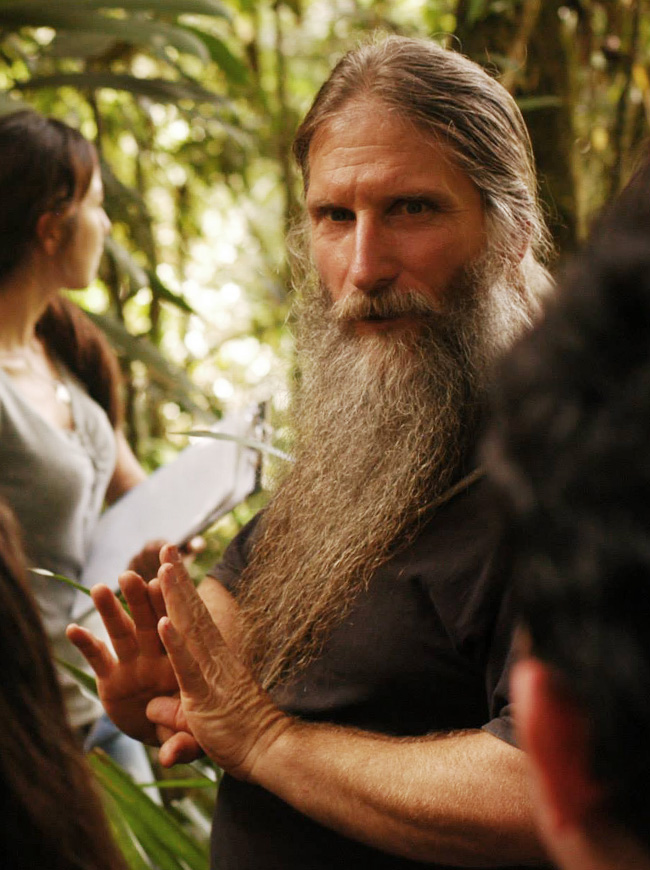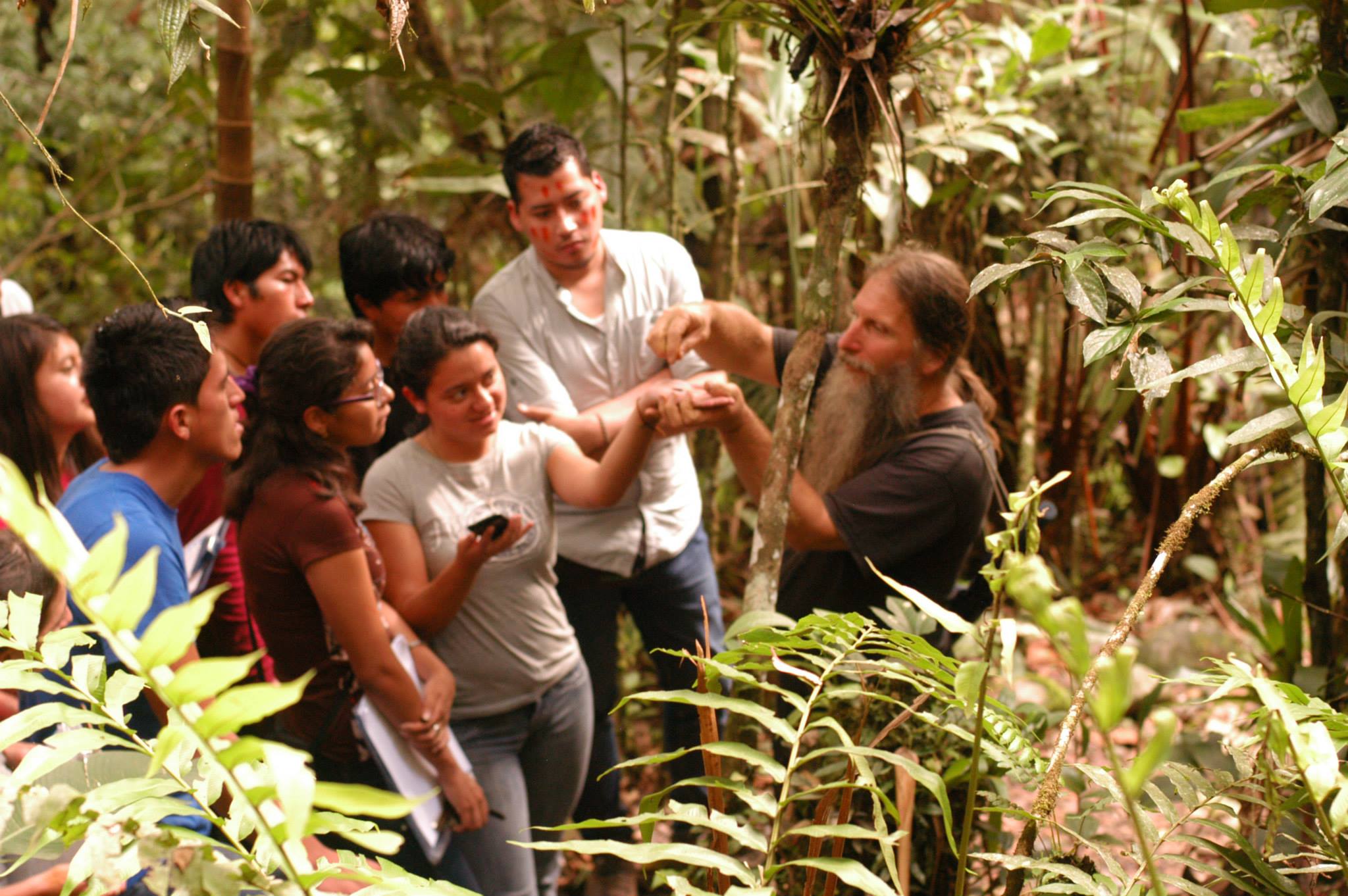

Professor Canaday receive tourists and students from Ecuador and the world, sharing his research in matters of biology, natural medicine, sustainability and sanitization.
Chris Canaday
Conservationist
Chris is a biologist in the Amazon. He is from California, where he studied Biology and Wildlife Management and learned about the immense biodiversity of the Tropics. After travelling and volunteering in Latin America for a year and a half, he did a masters in Conservation and Development in Latin America at the University of Florida, with a thesis on the impacts of deforestation and oil companies on Amazonian forest birds in the Cuyabeno Reserve of Ecuador. When he came back to Quito to let people know what he had found out, he was offered two jobs in conservation, without looking for them, and decided that this must be a sign that it was time to do conservation and not just talk about it, so he stayed and has helped to protect nature here for over three decades.
He did the fieldwork to help five indigenous communities in the Cuyabeno Reserve to sign cooperative agreements with the Ecuadorian national park service to define their land use rights, while assuring nature conservation.
Together with an indigenous Kichwa bird expert, Jiovanny Rivadeneyra, he measured the deepest recorded impacts on forest birds of anywhere in the world, with birds being affected kilometers into the forest mostly apparently due to the noise, in a project that was actually funded by the same oil company that was making these impacts in Yasuní National Park.
Article: Initial effects of a petroleum operation on Amazonian birds: terrestrial insectivores retreat
Together with Jiovanny, other friends, and the Tropical Nature Foundation, he helped the Añangu Kichwa Community to establish the most elegant jungle lodge in Ecuador and potentially the world: Napo Wildlife Center [LINK].
For 22 years, he has actively developed, researched, and promoted Ecological Sanitation [LINK] , in particular Urine-diverting Dry Toilets, but also Vegetated Sand Filters and other techniques that allow us to improve sanitary conditions while returning valuable nutrients to productive soils.
For the last 17 years, he has been helping to coordinate the Omaere Ethnobotanical Park, in Puyo, Ecuador [BLOG];[FB Page], which is the most accessible place where people can learn about and experience Amazonian nature and cultures, often with indigenous guides in 15 hectares that were reforested with the most important plants for local cultures. He demonstrates Ecological Sanitation here and also helps his wife, Teresa Shiki, an expert Shuar herbalist, to prepare ancestral natural medicine for many different ailments. His overall goal is to contribute to a sustainable future for people and all of the world’s biodiversity.
Advisor & Lecturer
STUDY ABROAD SUMMER PROGRAMS
Climate Change Advocacy - Chilean Expedition
Happy City - Criteria for Urban Well-being
Costume Design for Theater & Film - Dressing it Up
Making it Better - Industrial Design
Occupation 101 - Three Case Studies
CULTURAL STUDY TOURS
Prague Stories - Literature & Film
Architectural Treasures - Medieval to Modern
Tradition in Fibers - Maintaining the Craft
Green for Life - Prague's Parks & Gardens
The Glass Route - Czech Masters
WORKSHOPS & OTHERS
The Power of Art & Design - Chile
Digital Art Tools - ONLINE
Watercolor in New Orleans
Write a Screenplay in Prague
Service Learning - Rural Development

